Tomorrow, Saturday at 9 pm, you can watch another episode of Here’s the Thing, on Camões TV, where Manuel DaCosta will be speaking with Mário Fernandes. It is a powerful and inspiring conversation. In this edition of Milénio Stadium we are featuring a snippet of that interview. However, this highlight is enough illustrate how a 53-year-old man is going through a rebirth in an attempt to be clean and strong for the rest of his life.
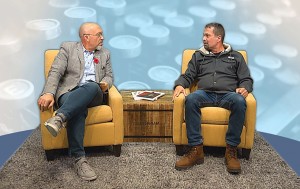
Manuel DaCosta: Today we have with us a special guest, Mr. Mário Fernandes. He was born and raised in Toronto to a normal Portuguese family and because of drugs he has spent the 38 years battling the addiction of gambling and drugs. He has done 17 different programs, and led a life of highs and lows from running a construction company to being homeless. He has now been clean for almost a year and I think he looks great. I think it is very courageous for him to be here with us today and look forward to discussing what it’s like to have gone through addiction, 17 programs and who is once again fighting back. One can only imagine the amount of dedication that is needed to straighten out his life. Obviously, an addict is never cured and it’s a daily fight. Welcome, Mário Fernandes.
Mário Fernandes: Thank you for having me.
MDC: I want to tell you once again that I think you’re a very brave man for being here and speaking with us about your personal life. I think it’s important and I think we can use this as an educational and informative process for others. I want to thank you for having the courage to sit here and answer a few questions because I think it’s very important that people to get a personal perspective.
MF: Thank you and if this can help somebody else, I’m all for it.
MDC: Why do you think it’s important to speak about this subject?
MF: I think what I’ve seen over the years is that sometimes there are problems in a family which has to do with addiction and basically, it’s kept a secret. The addiction loves that because, if you’re not out in the open, then you don’t have to treat it.
MDC: It gives you freedom.
MF: Exactly. This happened with me for a long time. My parents wanted to hide it. They wanted to hide.
MDC: They were ashamed to it.
MF: They were ashamed. Who wants to admit that one of their family members is messed up on drugs? For a long time that kept my addiction alive and well because it was a big secret. I was doing what I wanted. My parents weren’t receiving help from anywhere.
MDC: They, too, were suffering.
MF: Absolutely but they didn’t know what to do. This secret was kept for a long time. Today, I believe, if there’s an addiction in the family, the best thing to do is expose it. Exposing it means searching out help for yourself, and although the parents may not be addicts, they need therapy, too.
MDC: They absolutely need therapy to learn how to deal with the person who’s in trouble. Many times they don’t know where the support groups are or where to send their child to get some treatment. They feel a little hopeless. Tell me, when did you first start? What do you think was the trigger for you to start using drugs? Was your first problem, drugs or gambling? What was it for you?
MF: I started off with just smoking a little bit of pot when I was 12 or 13 years old. It was just it was a peer thing. I look back at it now and using that drug was just a symptom of the other disease—addiction. I was already the type of person who did everything to an but what caused me to start was peer pressure. I didn’t have the courage to say no. I didn’t want to be the guy left out.
MDC: Describe to me what you think addiction is.
MF: A lot of people do things that are extreme. The way I do it in my life is what I consider an addiction. Anything that can make my life unmanageable, be it be gambling, sex, drugs, alcohol or anything that I do in excess. Eventually it’s going to affect my well-being and make my life unmanageable. I consider that an addiction. I also consider addiction to be a disease. You know, it’s not a moral dilemma. It’s a disease.
MDC: When most people think of diseases, you assume if that if you take a pill or an injection, it makes you feel better.
MF: It’s a different type of disease. I need regular maintenance on mine and I do that quite a few times a week. Basically, if I’ve compared this disease to cancer at times. If a doctor said, ‘you have cancer, but rather than go through chemotherapy, all you have to do is go to a couple of meetings a week, call a sponsor, do a little bit of step work and you’ll be cured’. I think people would jump on that. The tricky part of this disease is that unless you get continuous help for it, you are always prone to falling back.
MDC: The falling back is always the biggest problem because when you fall back, you fall back even further. Isn’t that the norm?
MF: Yes. It’s a progressive disease, basically. If I was to relapse today, I would be right back where I was 11 months ago. It doesn’t take long for the tolerance to grow and for the denial to grow within you, because when you’re an active addiction, you actually don’t see anything wrong with your life. You’re the last one to find out you’ve got a problem.
MDC: Because you feel normal. On your darkest day, describe to me a day in the life of yourself as an addict.
MF: Well, you get up and the first thing you worry about is where are you going to get your next fix? Where you’re going to go? Where are you going to get money from? How are you going to do this? What are you going to do that day to get you high? That consumes you. It consumes me. I can only speak for myself but I know I would get up or leave the house and I’d think to myself, ‘ok, how am I going to score?’ It’s terrible. I don’t think about work. I don’t think about my family. I don’t think about my responsibilities. I think about how I’m going to get high.
MDC: What about money? To buy the drugs and to feed the habit. How does money come along?
MF: Well, there’s a lot of the things you hear about in the news—burglaries, home invasions and things like that. That’s something that I never got into. I never did. I didn’t have the heart to do that. With me, if I had no money and you wanted drugs, guess what? It was going to cost you drugs for me to get you drugs.
MDC: So, you would get them and then with the resale proceeds you’d buy for yourself.
MF: Exactly, or many times I wouldn’t even get paid in money because drugs are the currency out there. You sell this much, and you can keep this much. It’s a business environment.
MDC: Tell me, what effects being an addict had on your family life?
MF: The biggest thing that I regret it is the fact that I lost all that time with my family. I’m 53 years old. I’ve had bouts of clean time but you got to think for all those years I was using, I wasn’t with my family. I’ve grown older. They’ve grown older. I missed out on a lot and that’s probably my biggest regret.
MDC: Well, what kind of family do you have other than your parents?
MF: I have a 21-year-old son who is a great kid. I love him very much and unfortunately, one of my regrets is that he saw me go through some of this stuff.
MDC: Do you ever talk about it with him? As a preventive measure.
MF: I try to but he’s 21, so he’s got all the answers…but he’s a good kid. I think he’s in really good shape but every once in a while, if I see something that I think isn’t right, I’ll throw it out there and he just tells me that I don’t need to worry about him in that way.
MDC: Well, maybe because he sees how much you’ve suffered in your life as a result.
MF: I hope it helps him…I hope it helps everybody.
MDC: You’ve been clean for a year?
MF: Today’s actually eleven months.
MDC: Eleven months. Congratulations.
MF: Thank you.
MDC: What has kept you clean for 11 months?
MF: I had to change everything and everyone. I was living in another city and I got to the point where I was homeless. I wanted to stop and I just couldn’t do it, so, I got back here to Toronto. I believe the biggest thing that’s kept me clean is the fact I’ve had family support. My family went out on a limb for me this time. They took me and they did everything they could to help me and for some reason this time, I really wanted to stop.
MDC: Being out there homeless, I assume feeling alone and abandoned, what were you thinking about?
MF: To tell you the truth, what I was thinking on a day to day basis was how to get drugs and how to keep getting drugs. I would think of my family occasionally, think of my son and of everything I’d lost. At the end of the day, my biggest concern was to get more dope.
MDC: Did you ever get psychological help or you did you have to do it yourself?
MF: No, I went to get outside help and I’ve been very fortunate this time around. I’ve had some great doctors and some great people in the field that have gone out of their way to help me. I’m very grateful and I’m very hopeful that I’ll continue doing exactly what I’ve been doing.
MDC: If you could go back, what would you change?
MF: I would never have smoked that first joint. I’ve said this many times, getting high for the first time 12, 13 years old was bad. I would not do that today because that drug was a gateway for all the others that I’ve tried.
MDC: Do you think with your strength and as an example to your 21-year-old son that you’re going to try and keep clean for the rest of your life?
MF: My intention is to stay clean one day at a time. I try to live in the moment, although sometimes you can worry about your future and you can regret your past. Basically, I try to take one day at a time and I hope that by doing that, I’m giving the proper example to my son.
MDC: You know, Mário, I want to thank you again for your courage. I wish you all the best in the future—to keep clean and to lead what we would call a normal life. Actually, none of our lives are really normal, so let’s call it a life with focus. I wish you all the best.
MF: My pleasure. Thank you.
Manuel DaCosta / Transcrição: Sara Oliveira/MS

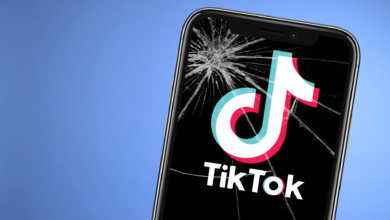

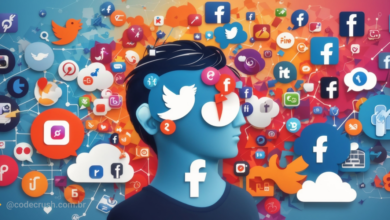
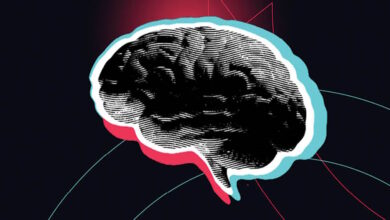


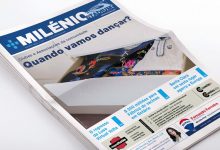
Redes Sociais - Comentários